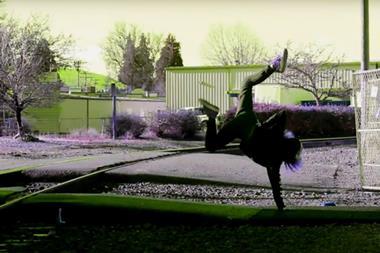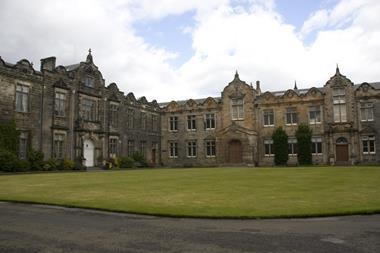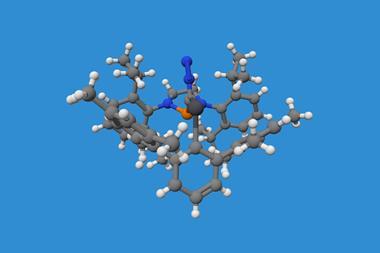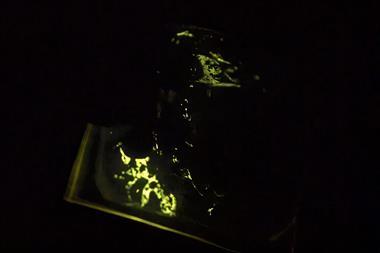The biggest blaze in Nottinghamshire for over a decade has completely destroyed the GlaxoSmithKline Carbon Neutral Laboratory for Sustainable Chemistry at the University of Nottingham’s jubilee campus, which was under construction and slated to be finished by mid-2015.
The £20 million lab, which was based on carbon neutral principles and materials including a timber frame, was about 70% complete when fire broke out and reduced it to ashes on the evening of 12 September. Over 60 firefighters tackled the blaze at the empty building site on Triumph Road, Radford, and there were no casualties.
‘Everyone in the school of chemistry has been, understandably, shocked and saddened by Friday’s fire,’ says Jonathan Hirst, head of the school of chemistry at Nottingham. ‘We are all thankful that there was no loss of life and thankful that the emergency services, through their professionalism, were able to stop the fire spreading any further than it did.’
A university spokeswoman says the building was designed to meet stringent fire regulation requirements. Fire investigators and police are now trying to determine the cause of the fire.
‘There is a very strong sense of pulling together within the school, across the university and with our external partners, to make sure that we get our future plans back on track and that we are able to start re-building as soon as possible,’ says Hirst. ‘Our current teaching and research on the university park campus are completely unaffected. We enjoyed a very successful open day the day after the fire and we are looking forward to the new academic year starting next week.’
‘Despite the obvious turmoil and upset at the destruction of a fantastic facility before its completion, congratulations to Nottingham University, who still managed to welcome thousands of students to an open day this weekend,’ said Clare Viney, executive director of communications at the Royal Society of Chemistry. ‘While it is sad news that the sustainable chemistry laboratory launch will now clearly be delayed, it is heartening to know there won’t be any immediate impact on the excellent chemistry teaching and research at the university.’
Hirst is encouraged by the support the university has received since the fire. ‘Our future research in sustainable chemistry will not be stopped by this. We have received many messages of support from around the globe, which have been very heartening and which reflect the international regard in which the school of chemistry at Nottingham is held.’






















No comments yet